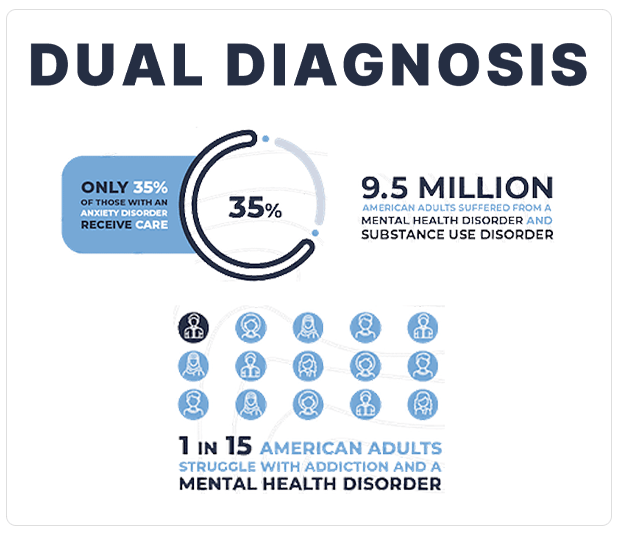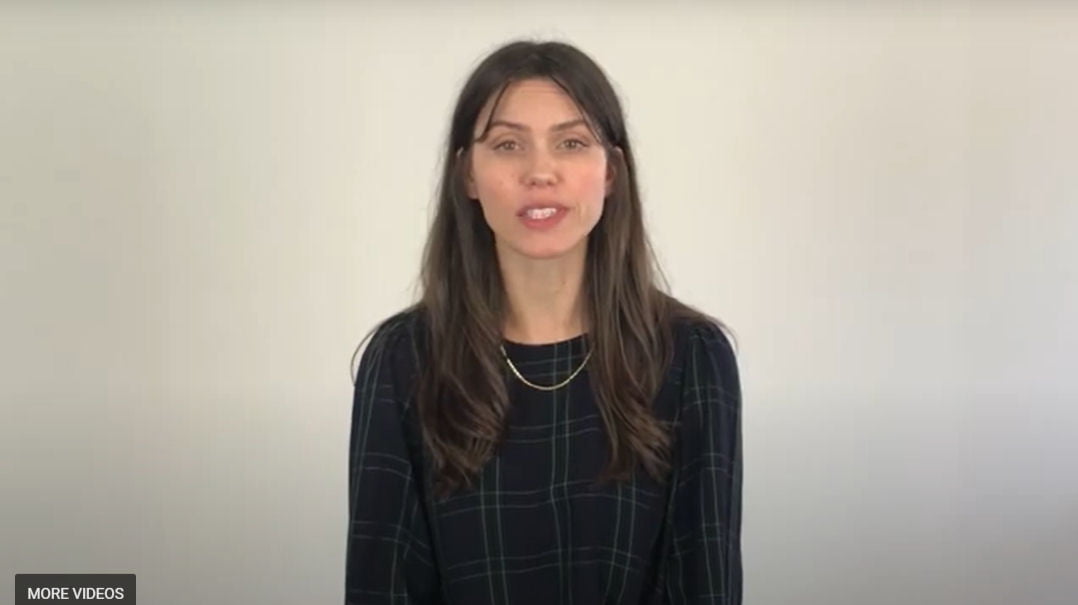Witnessing the transformative journey of individuals rebuilding their lives is truly remarkable, particularly when equipped with the right resources. Our top-tier, long-term drug rehab and sober living community in Portland plays a pivotal role in guiding individuals through addiction recovery. If you are seeking a supportive environment that addresses both mental health and substance use challenges, we encourage you to contact us today. Explore the possibilities of our drug and alcohol rehab center and discover the welcoming community for your recovery journey.

Healing Begins Here

TREATING MENTAL HEALTH AND ADDICTION
- ADHD
- Depression
- Severe anxiety
- Bipolar disorder
- Personality disorders
- Impulse disorders
Medical professionals used to think that individuals with an addiction had to get sober before treating their mental illness. However, treating these conditions without considering both doesn’t work. At Crestview Recovery, we delve into all the factors that steer you away from living optimally.
DUAL DIAGNOSIS TREATMENT CENTERS IN OREGON
When individuals seek treatment at our residential treatment center in Portland, Oregon, they complete a comprehensive assessment with a member of our medical team. A therapist or counselor will evaluate an individual to identify a mental health disorder or co-occurring substance use disorder. Throughout recovery in dual-diagnosis treatment centers, individuals are regularly evaluated to determine if their individualized treatment plan requires adjustment. Comprehensive assessment also helps with medication management.
Medically supervised detox is essential to help treat the substance use disorders co-occurring with a mental health condition in a dual diagnosis. Detoxification helps individuals manage withdrawal symptoms while also helping them stop the abuse of a substance.
A variety of therapeutic interventions are necessary to tackle the interaction between different psychological conditions and addiction. When people’s psychological needs are met, it becomes much easier for them to build life skills. At Crestview Recovery, our evidence-based therapies for dual diagnosis include:
Addressing psychological illness alongside substance use disorders lowers the risk of relapse. A holistic treatment plan improves the chances of achieving success and long-lasting recovery.
Holistic therapies play a pivotal role in dual diagnosis treatment by addressing the interconnected well-being of the mind, body, and spirit. Holistic approaches such as yoga, meditation, mindfulness, art therapy, and acupuncture can help individuals heal physically and emotionally. Promoting overall wellness as an integral component of the recovery journey. These therapies not only provide valuable tools for coping with mental health challenges but also contribute to a more comprehensive and sustainable recovery experience when combined with other therapeutic interventions.
At Crestview Recovery in Portland, Oregon, our commitment to comprehensive care includes a specialized medication management program tailored for individuals navigating dual diagnoses. The medication management program is designed to optimize the therapeutic benefits of prescribed medications, ensuring a balanced and effective treatment plan. Occasionally medications are prescribed to treat substance use, but medication is more commonly used for treating anxiety, depression, PTSD, and other mental health disorders. Regular monitoring and adjustments, when necessary, are integral to this program, providing individuals with the personalized support needed for successful recovery.
Our aftercare program in Portland, Oregon, is for those in addiction and mental health recovery. Aftercare includes training for relapse prevention and guidance for the next steps of treatment. Individuals in the dual diagnosis program at Crestview Recovery may move on to intensive outpatient treatment, traditional outpatient therapy, our partial hospitalization program, or sober living. Dual-diagnosis patients may require intensive therapy and can continue their therapeutic regimen in outpatient treatment.
The specific elements of an aftercare program can be tailored to meet individual needs, promoting sustained sobriety and mental well-being. Regular check-ins, ongoing therapeutic support, and access to community resources are common features, ensuring a seamless transition from intensive treatment to a more independent, yet supported, post-rehabilitation life.

MENTAL HEALTH AND ADDICTION ARE LINKED
By recognizing and treating the interconnected nature of mental health and addiction, individuals can achieve more sustainable recovery outcomes, breaking free from the cyclical patterns that perpetuate these challenges. A holistic and integrated approach, considering both mental health and substance use, is fundamental for fostering lasting well-being and resilience in those on the path to recovery.
ADDICTION TREATMENT IN PORTLAND
At Crestview Recovery we offer specialized care for many substance use disorders. Our dual diagnosis rehab center addresses alcohol and drug addiction. We also offer residential treatment services as well as outpatient services, making our treatment plans more flexible and accessible.

MENTAL HEALTH TREATMENT SERVICES
Individuals seeking treatment will receive individualized treatment plans to address mental health concerns. In our mental health program, we utilize individual counseling, medication management, and holistic therapy to help our clients rehabilitate.
Our team offers treatment for these mental health disorders:


 Group therapy
Group therapy Depression
Depression Anxiety
Anxiety Post-Traumatic Stress Disorder
Post-Traumatic Stress Disorder Panic disorder
Panic disorder



















